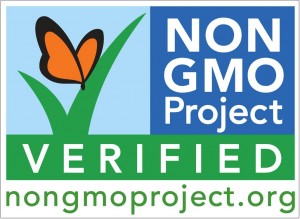GMOs – You ARE eating THEM!
Learn More About GMOs (Genetically Modified Organisms)
It looks the same—the bread, pies, sodas, even corn on the cob. So much of what we eat every day looks just like it did 20 years ago. But something profoundly different has happened without our knowledge or consent.
In May 2009, the American Academy of Environmental Medicine (AAEM) publicly condemned genetically modified organisms (GMOs) in our food supply, saying they posed “a serious health risk.” They called on the US government to implement an immediate moratorium on all genetically modified (GM) foods, and urged physicians to prescribe non-GMO diets for all patients.
Genetic engineering is quite distinct from selective breeding because it involves taking genes from a completely different species and inserting them into the DNA of a plant or animal. The long term effects of this for our health and our planet’s biodiversity are unknown.
AAEM, an “Academy of Firsts,” was the first US medical organization to describe or acknowledge Gulf War Syndrome, chemical sensitivity, food allergy/addiction, and a host of other medical issues. But the potential for harm from GMOs dwarfs anything they have identified thus far. It can impact everyone who eats.
More than 70% of the foods on supermarket shelves contain derivatives of the eight GM foods on the market—soy, corn, oil from canola and cottonseed, sugar from sugar beets, Hawaiian papaya, and a small amount of zucchini and crook neck squash. The biotech industry hopes to genetically engineer virtually all remaining vegetables, fruits, grains, and beans (not to mention animals).
The two primary reasons why plants are engineered, are to allow them to either drink poison, or produce poison. The poison drinkers are called herbicide tolerant. They’re inserted with bacterial genes that allow them to survive otherwise deadly doses of toxic herbicide. Biotech companies sell the seed and herbicide as a package deal, and US farmers use hundreds of millions of pounds more herbicide because of these types of GM crops. The poison producers are called Bt crops. Inserted genes from the soil bacterium Bacillus Thuringiensis produce an insect-killing pesticide called Bt-toxin in every cell of the plant. Both classes of GM crops are linked to dangerous side effects.
Doctors and Patients: Just Say No to GMOs
“Now that soy is genetically engineered,” warns Ohio allergist Dr. John Boyles, “it is so dangerous that I tell people never to eat it.” How dangerous are GM foods? World renowned biologist Pushpa M. Bhargava, PhD, believes they may be a major reason for the recent rise in serious illnesses in the US.
The range of what GMOs might do to us is breathtaking. “Several animal studies,” according to the AAEM, reveal a long list of disorders, including: “infertility, immune dysregulation, accelerated aging, dysregulation of genes associated with cholesterol synthesis, [faulty] insulin regulation, cell signaling, and protein formation, and changes in the liver, kidney, spleen and gastrointestinal system.”
“There is more than a casual association between GM foods and adverse health effects,” says the AAEM position paper. Based on established scientific criteria, “there is causation.”
Difficult to Trace the Damage
Outside the carefully controlled laboratory setting, it is more difficult to confidently assign GMOs as the cause for a particular set of diseases, especially since there are no human clinical trials and no agency that even attempts to monitor GMO-related health problems among the population. “If there are problems,” says biologist David Schubert, PhD, of the Salk Institute, “we will probably never know because the cause will not be traceable and many diseases take a very long time to develop.”
GM crops were widely introduced in 1996. Within nine years, the incidence of people in the US with three or more chronic diseases nearly doubled—from 7% to 13%. Visits to the emergency room due to allergies doubled from 1997 to 2002. And overall food related illnesses doubled from 1994 to 2001, according to the Centers for Disease Control. Obesity, diabetes, gastrointestinal disorders, and autism are also among the conditions that are skyrocketing in the US.
The Lyme Induced Autism Foundation, a patient advocacy group, is not waiting for studies to prove that GMOs cause or worsen Lyme, autism, and the many other diseases on the rise since gene-spliced foods were introduced. Like AAEM, the LIA Foundation says there is more than enough evidence of harm in animal feeding studies for them to “urge doctors to prescribe non-GMO diets” and for “individuals, especially those with autism, Lyme disease, and associated conditions, to avoid” GM foods.
Another patient group, those suffering from eosinophilia myalgia syndrome (EMS), is more confident about the GMO origins of their particular disease. It was caused by a genetically engineered brand of a food supplement called L-tryptophan in the late 1980s. It killed about 100 Americans and caused 5,000-10,000 people to fall sick or become permanently disabled. The characteristics of EMS made it much easier for authorities to identify the epidemic and its cause. It only affected those who consumed the pills; symptoms came on almost immediately; and its effects were horrific—including unbearable pain and paralysis. There was even a unique, easy-to-measure change in the white blood cell count. But even though EMS was practically screaming to be discovered, it still took the medical community more than four years—and it was almost missed.
“The experiments simply haven’t been done and we now have become the guinea pigs.” David Suzuki, renowned Canadian geneticist.
What if the GMOs throughout our food supply are creating common diseases which come on slowly? It would be nearly impossible to confirm them as the cause. “Physicians are probably seeing the effects in their patients,” says AAEM president Dr. Jennifer Armstrong, “but need to know how to ask the right questions.” The patients at greatest risk are the very young. “Children are the most likely to be adversely effected by toxins and other dietary problems” related to GM foods, says Dr. Schubert. They become “the experimental animals,” our collective canaries in the coal mine.
Warnings by Government Scientists Ignored and Denied
Scientists at the Food and Drug Administration (FDA) had warned about all these problems back in the early 1990s. According to secret documents made public from a lawsuit, the scientific consensus at the agency was that GM foods were inherently dangerous, and might create hard-to-detect allergies, poisons, new “super” diseases, and nutritional problems. They urged their superiors to require rigorous long-term tests. But the White House had ordered the agency to promote biotechnology and the FDA responded by recruiting Michael Taylor, Monsanto’s former attorney, to head up the formation of GMO policy. That policy, which is in effect today, denies knowledge of the scientists’ concerns and declares that no safety studies on GMOs are required. It is up to Monsanto and the other biotech companies to determine if their own foods are safe.
After overseeing GMO policy at the FDA, Mr. Taylor worked on GMO issues at the USDA, and then later became Monsanto’s vice president. In the summer of 2009, he went through the revolving door again. Taylor was appointed by the Obama administration as the de facto US food safety czar at the FDA.
Dangerously Few Studies, Untraceable Diseases
“Where is the scientific evidence showing that GM plants/food are toxicologically safe, as assumed by the biotechnology companies?” This was the concluding question posed in a 2007 review of published scientific literature on the health risks of GM plants, showing that the number of studies and available data are “very scarce.”
“The experiments simply haven’t been done and we now have become the guinea pigs,” says renowned Canadian geneticist David Suzuki. He adds, “Anyone that says, ‘Oh, we know that this is perfectly safe,’ I say is either unbelievably stupid or deliberately lying.”
What Can We Do?
When consumers realize the dangers of GM foods and that the FDA has abdicated its responsibility to protect us, they usually want to opt out of this massive feeding experiment. In fact, most Americans already say they would avoid GMO brands if given a choice.
It wouldn’t take a majority of us to kick GMOs out of our food supply. Kraft and other food companies wouldn’t wait until half their market share is gone before telling their suppliers to switch to the non-GM corn, soy, etc. By using GM ingredients, they don’t offer customers a single advantage. The food doesn’t taste better, last longer, or have more nutrients. Thus, if even a tiny percentage of US consumers—say 5% or 15 million people—started avoiding GMO brands, the millions in lost sales revenue would likely force brands to remove all GM ingredients, like they already have in Europe.
But the FDA doesn’t want to give us the choice. They ignore the wishes of nine out of ten Americans for mandatory GMO labeling in order to promote the economic interests of just five biotech companies.
Fortunately, with so many health-conscious consumers clamoring for non-GMO options, many brands, particularly those serving the natural food industry, voluntarily label or promote their products as Non-GMO. These healthier non-GMO foods have been compiled into the Non-GMO Shopping Guide, which makes it much easier to take the doctors’ advice and avoid eating genetically modified foods.
It’s time to take back our own diets, and in doing so, create a non-GMO tidal wave to wash away GMOs for everyone’s benefit.
If you are involved with a group that may want to be educated about GMOs,
Sue Busen provides presentations to raise awareness about GMOs.
Contact Sue for more information and availability.
Remember, education is key in getting GMOs out of our food supply!
To learn how to choose healthier non-GMO brands, view or download the guide at www.NonGMOShoppingGuide.com.
If you have an iPhone, you can get the free app “ShopNoGMO” and build a custom shopping list.
While you are shopping, you can also Look for this Logo:

To learn more about the health dangers of GMOs, and what you can do to help end the genetic engineering of our food supply, visit www.ResponsibleTechnology.org.
International bestselling author and filmmaker Jeffrey Smith is the leading spokesperson on the health dangers of genetically modified (GM) foods.


